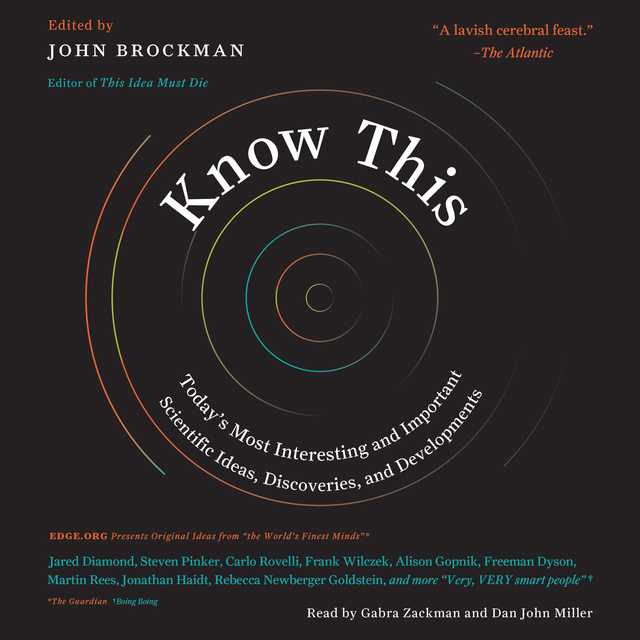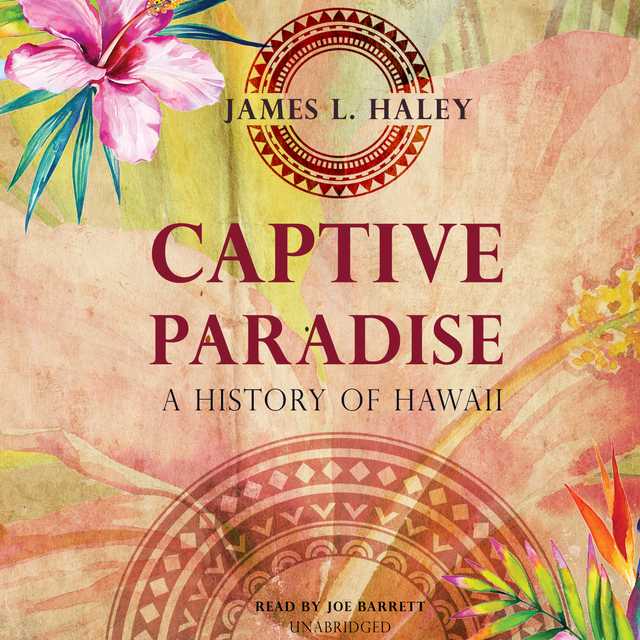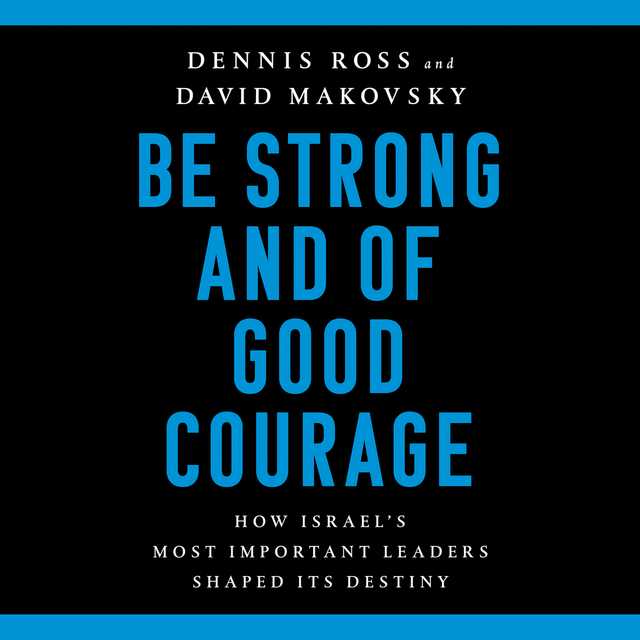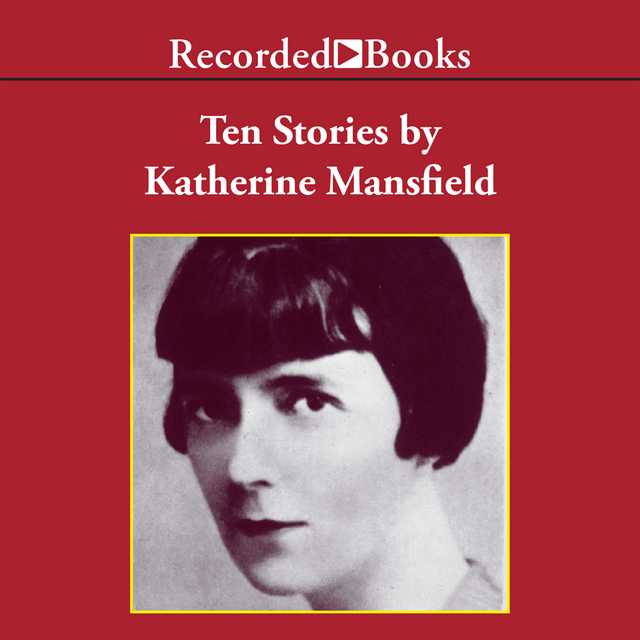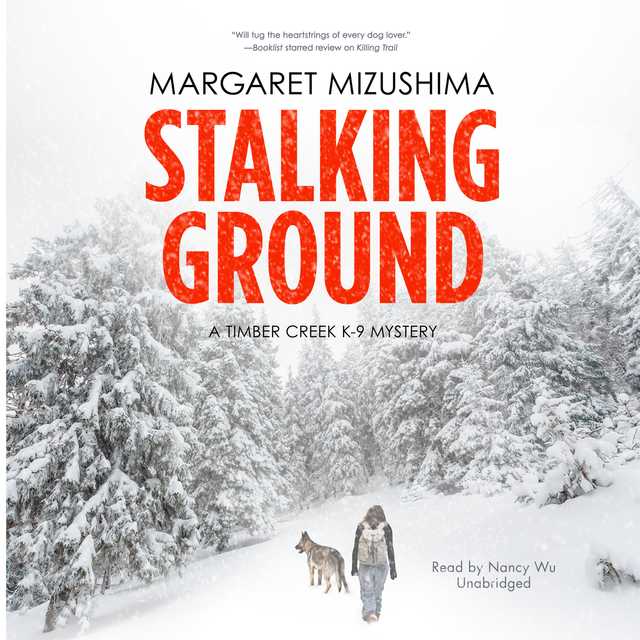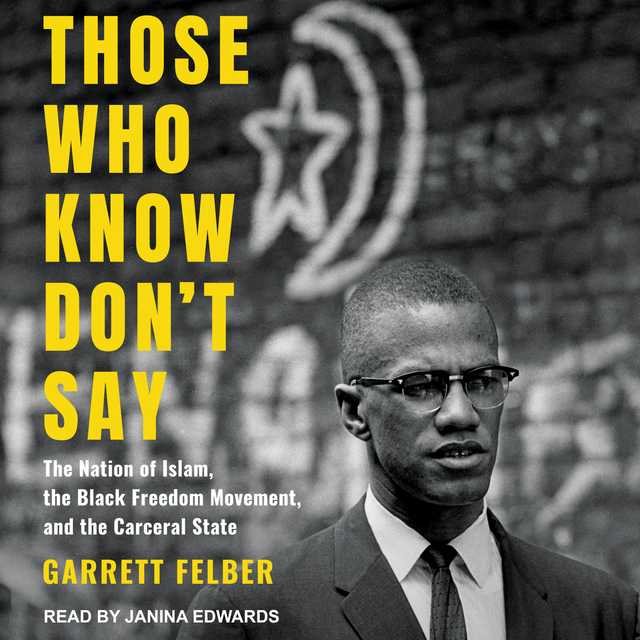Know This Audiobook Summary
The latest volume in the bestselling series from Edge.org–dubbed “the world’s smartest website” by The Guardian–brings together 175 of the world’s most innovative and brilliant thinkers to discuss recent scientific breakthroughs that will shape the future.
Scientific developments radically alter our understanding of the world. Whether it’s technology, climate change, health research, or the latest revelations of neuroscience, physics, or psychology, science has, as Edge editor John Brockman says, “become a big story, if not the big story.” In that spirit, this new addition to Edge.org’s fascinating series asks a powerful and provocative question: What do you consider the most interesting and important recent scientific news?
Contributors include: Pulitzer Prize-winning author of Guns, Germs, and Steel JARED DIAMOND on the best way to understand complex problems; author of Seven Brief Lesson on Physics CARLO ROVELLI on the mystery of black holes; Harvard psychologist STEVEN PINKER on the quantification of human progress; TED conferences curator CHRIS J. ANDERSON on the growth of the global brain; Harvard physicist LISA RANDALL on the true measure of breakthrough discoveries; Nobel Prize-winning physicist FRANK WILCZEK on why the 21st century will be shaped by our mastery of the laws of matter; music legend PETER GABRIEL on tearing down the barriers between imagination and reality; Princeton physicist FREEMAN DYSON on the surprising ability of small (and cheap) upstarts to compete with billion-dollar projects. Plus: Nobel laureate JOHN C. MATHER, Sun Microsystems co-founder BILL JOY, Skeptic magazine publisher MICHAEL SHERMER, Genome author MATT RIDLEY, Harvard geneticist GEORGE CHURCH, and many more.
Other Top Audiobooks
Know This Audiobook Narrator
Gabra Zackman is the narrator of Know This audiobook that was written by John Brockman
The publisher of the online science salon Edge.org, John Brockman is the editor of Know This, This Idea Must Die, This Explains Everything, This Will Make You Smarter, and other volumes.
About the Author(s) of Know This
John Brockman is the author of Know This
More From the Same
- Author : John Brockman
- Possible Minds
- Thinking
- This Explains Everything
- The Universe
- Life
- Publisher : HarperAudio
- Abraham
- American Gods [TV Tie-In]
- Dead Ringer
- House of Sand and Fog
- Prey
Know This Full Details
| Narrator | Gabra Zackman |
| Length | 14 hours 39 minutes |
| Author | John Brockman |
| Category | |
| Publisher | HarperAudio |
| Release date | February 07, 2017 |
| ISBN | 9780062659323 |
Subjects
The publisher of the Know This is HarperAudio. includes the following subjects: The BISAC Subject Code is General, Life Sciences, Science
Additional info
The publisher of the Know This is HarperAudio. The imprint is HarperAudio. It is supplied by HarperAudio. The ISBN-13 is 9780062659323.
Global Availability
This book is only available in the United States.
Goodreads Reviews
Mario the lone bookwolf
March 22, 2019
Short stories and tiny tales from many disciplines, which can serve as starting points for own ideas and an expansion of the spectrum. Please note that I have put the original German text to the end of this review. Just if you might be interested.The influence that the concept of such works can have is still difficult to quantify. Previously, the Usus was rather to write a whole book and fill with various personal anecdotes and information dump to achieve the appropriate scope. The distillate of the ideas of multiple experts on a topic breaks new ground. Instead of an author writing extensively on a topic in his department, many comment on an issue. The different approaches and above all understandable, short explanations are of added value for the readers. Not around a thesis, a common thread, a plotline,... a whole non-fiction book is spun. But the compressed content of the main idea is examined from all sides and with different mental instruments.One gets to know other points of view that one would otherwise not have faced due to bias. About which one would not have read a book, maybe not even a longer article. Classic, probably unconscious, prejudice and cognitive dissonance. In this way, one also opens the mind to disciplines that one would have wrinkled the nose about. And one finds, no wonder, additions and extensions to own knowledge. Or, a particularly rare jewel, errors to be repaired in one's personal opinion or thesis.Kurzgeschichten und tiny tales aus vielen Disziplinen, die als Ausgangspunkte eigener Ideen und Erweiterung des Spektrums dienen können.Der Einfluss, den das Konzept derartiger Werke haben kann, ist noch schwer zu quantifizieren. Bisher war der Usus eher, ein ganzes Buch zu schreiben und mit diversen persönlichen Anekdoten und Infodump zu füllen, um den entsprechenden Umfang zu erreichen. Mit dem Destillat der Ideen verschiedener Experten zu einem Thema wird Neuland betreten.Anstatt dass ein Autor ausführlich über ein Thema seines Fachbereichs schreibt, äußern sich viele zu einem Thema. Die unterschiedlichen Herangehensweisen, Erklärungsansätze und vor allem verständlichen, kurzen Erklärungen sind von Mehrwert für die Leser. Nicht um eine These, einen roten Faden, eine Plotline, wird ein ganzes Sachbuch gesponnen. Sondern der komprimierte Inhalt der Leitidee von allen Seiten und mit verschiedenen mentalen Instrumenten durchleuchtet.Man lernt andere Standpunkte kennen, mit denen man sich sonst aufgrund von Voreingenommenheiten nicht auseinander gesetzt hätte. Über die man kein Buch gelesen, vielleicht nicht einmal einen längeren Artikel gelesen hätte. Klassische Bias und kognitive Dissonanz. So öffnet man auch Fachrichtungen, über die man hinter vorgehaltener Hand die Nase gerümpft hätte, Auge und Hirn. Und findet dabei, welch Wunder, Ergänzungen und Erweiterungen zum eigenen Wissensschatz. Oder, ein besonders seltenes Juwel, zu reparierende Fehler in der eigenen Meinung oder vertretenen These.
Bon Tom
May 11, 2020
A cocktail of essays, sketches, flashes of insight from the cutting edges of most varied fields of science. Naturally, some more interesting than others, depending on the reader. But that's the very reason everybody should be able to find fascinating revelations among its pages. More than few of them worth bookmarking and rereading time and again.
Tonstant
February 15, 2017
Know This is a collection of short essays that answer the 2016 question from Edge, “What do you consider the most interesting recent (scientific) news? What makes it important.” The question is different every year. For 2017, the question is “What scientific term or concept out to be more widely known?” What makes the Edge annual questions so interesting is they are answered by leaders in many fields, mostly in science, but also artists, mathematicians, historians, software developers, musicians, and philosophers. Who is not answering? Anonymous blowhards and conspiracy theorists are mercifully absent.So what do people consider the most interesting recent news? A lot of people are rightly concerned about rising sea levels, global warming, and other environmental issues. Around 4,400 people die from air pollution every single day in China. As the author wrote, “Every time I hear of some tragedy that makes headlines, such as a landslide in Shenzhen that killed 200 people, I think to myself, “Yes — and today 4,400 people died of air pollution and it didn’t make the news.” He also pointed out that China posts environmental data updates hourly. This struck me as particularly poignant with this week’s silencing of several federal agencies for unknown reasons, on the environment at least, China is now a more open and transparent country that the U.S.There were a number who focused on the rejection of science while others mentioned the declining standards of scientific research publications. One of my favorite essays is “We Fear the Wrong Things,” something that drives me nuts. This is because of the availability heuristic, we fear what we remember, what’s available to our thoughts. So, because it is not news when someone dies of something ordinary but common, we don’t worry about it. Instead we worry about unlikely disasters that make the news precisely because they are unlikely. Which is why “we spend an estimated $500 million per U.S. terrorist death but only $10,000 per cancer death.”There are answers that talk about math, physics, amazing new technology, psychology and health. The variety is as broad as the 198 respondents who participated last year.I loved Know This and know I will read it again. It is one of those books that insist on being read more than once and read slowly. Doctor’s offices should have copies in their waiting rooms. People should think of it as a coffee table book for readers. The short essays are the perfect length for someone to read while you make a cup of tea or do the last minute assembly before dinner. It’s better to read just one or two or, at most, three answers at a time so you have a chance to synthesize them, to consider each answer distinctly from other answers. Just reading straight through will never do the book justice because it will all run together.This book deserves the justice of being read so that each answer can be a separate, considered reading. Topics are so disparate and varied that they only work if you don’t try to absorb them all at once. I rate this book so highly because it both fascinating and important. These are things we should know, things that deserve our attention. I am glad Edge makes a point of trying to get us to do so.Know This will be released on February 7, 2017. I was provided an advance e-galley by the publisher through Edelweiss.★★★★★http://tonstantweaderreviews.wordpres...
Tadas
July 24, 2017
Life without problems make more idiots, here's how it will be in the future in the vision of Idiocracy.“This isn't tolerable for the democracy in the increasing technological world. The most significant example is climate change, it turns out, for instance, that many basic terms are unintelligible for newspaper readers.Or as this quote from the book:"Recently I encountered a statement that theory is just a guess, and that includes evolution, not mentioning what was reconstructed by cosmologists about formation of the universeWhen new data is published that includes the correction or expansion of the previous work this is taken to indicate weakness rather than great strength of scientific work as an open system, always subject to correction by the new information.When the winter temperature dips below freezing, you hear - this proves that the Earth is not warming. Most Americans are not clear on the difference between weather and climate."This was really good book, why not 5? Just because I like one subject per book more. This book is in no way related to what I've just wrote, it actually covers many recent developments in science.
Andrew
December 29, 2019
KNOW THIS – Edited by John Brockman, published by Harper PerennialA book filled with juicy speculations, scientific ideas, conjecture and controversy.Overall, this book is a must-read for any thinking person. I found the Astronomy articles particularly mind-blowing. Others informed and raised many questions.The first article, Human Progress Quantified, by Steven Pinker, is a contentious one and perhaps an ambitious task given all the variables. I am of a different opinion to Steven Pinker, who believes Objective Data shows measurable progress. Really? With the planets wild animal population reduced by half since 1970 and the human population doubled, fed by a conveyer belt of suffering livestock, with our bodies and our oceans chocking on plastic, Steven Pinker concludes, altruism, health and intelligence increasing and setbacks and wars mainly localised. (Intuitively, he agrees, it seems the opposite is true.)Has he fully taken into account the fact that any perceived progress has come at the expense of the planet and its environment, is currently unsustainable, and with 8 billion people soon to be on board, the stakes are higher than ever? (According to another article in this book, 4000 people die of air population everyday in China – and they are the official Chinese figures).Maybe the question I am alluding to is what is the net amount of suffering? and is it higher today than ever? I think so, because of the numbers – It’s a good argument that any diabolically grim life in the middle ages, beset with hunger, disease and religiously-driven psychological torture is, mercifully, less severe because there were only a few million people on the entire earth (as opposed to several Billion today) and life was short.I suggest the, depressing but hard to counter, ‘Edwardson Formula’ applies, certainly given the history of human expansion and settlement –LIFE = Suffering. More Life = More Suffering.Given man’s well-documented destructive and cruel nature, if we include the higher animals, suffering goes thru the stratosphere.And if suffering has increased, then no amount of ‘quantifiable’ human progress can offset this terrible propagation of misery, given that good only offsets bad if it undoes the bad.To counter fatalism and the dangers of negative self-fulfilling prophesies, perhaps we need highly educated, creative thinkers and optimists like Steven Pinker and I look forward to reading his ‘Enlightenment’ book, just as, he agrees, we need to guard against complacency. However, I suspect, some of those dedicated and fortunate to have time for visionary analysis, propagate an optimistic illusion from their bubble of academia – connected, as they are, with nearly every incredible mind on the planet – but of course, somewhat removed from the mindless. This was also one of many impressions, good and bad, I had when a similar question put in another fine book related to Steven Pinker, What are you Optimistic About? (Perhaps those of us who have chosen to propagate the species – Unwisely I feel – may be more susceptible to confirmation bias when it comes to the future of our offspring, given humankind’s documented psychological need to justify our decisions).
Matthew
October 05, 2021
3.6A lot of fascinating insights from exceptional scientists but just as much unintelligible rambling about computer learning and particle physics. Took me 4 months to listen to the whole 14.5 hours. I passionately support the idea of better science news and the thesis of this book is unassailable and so important. That Science is the only news and that the human stories that fill our news pages (even politics and economics) are just the same sorry cyclic dramas, “Human nature doesn’t change much; science does, and the change accrues, altering the world irreversibly”. Additionally asking a large number of smart people the same question is a fun format that produces a remarkable snapshot of scientific stories and opinions, all very raw and unedited. However, half of the resulting essays are either subjectively boring for me or objectively bad (unintelligibly filled with jargon; or from sounding unconvincing and unqualified, like when they go outside their fields. I’m looking at you Jared diamond). I have to agree with all the other criticisms of this book too: Already outdated, often flamboyant without references, many just promoting and overselling their research areas (those ones were pretty obvious, I’m looking at you mathematics people). I strongly disagree with all the readers criticizing how the answers overlapped. I think that was the biggest strength of this book, the fact that many give similar answers (like the end of string theory or break throughs in Deep learning) really shows their importance and helps you to remember them. I also didn’t think anyone was fear mongering about climate change (calm down conservatives). I agree with the positive reviews: thought provoking, glittering variety, concise, good for your brain. Half of them were very interesting and perhaps 20 out of the 198 essays legitimately captivated me. I would recommend this to only those with a science background, and I think its important to skip the essays that don’t grab you. I hope that future versions of this do more editing to remove the weaker contributions and also render many of them more reader friendly by removing some jargon The next and latest book in the series was released in 2018 so will check that one out, it has a better rating but a less interesting theme “What scientific term or concept ought to be more widely known?”. The most memorable 6 essays for me were…. 019. Rory Sutherland: The Dematerialization of Consumption. We have reached peak stuff, materialism and status seeking is decreasing and changing. Car and Car purchasing is decreasing. Half of US young people don’t have licenses. People are buying more intangibles like streaming music and film. Living in tiny flats in the middle of the city is more fashionable than mansions. Online social media makes experiences more powerful status signaling than possessions. In my words, he is saying that the human qualities of status rivalry and novelty-seeking have been so destructive for hundreds of years but are now being unintentionally redirected into far more benign Instagramable forms. Let the masses have their fake social media lives, fake means sustainable, and it's better than the traditional consumption of giant properties and big cars and ornaments made out of ivory or whatever. 026. Sarah Demers: Hope Beyond the Higgs Boson. A decade of work lead to the discovery of the last particles of the standard model, but they worry they will never learn more about dark matter, dark energy, quantum gravity, or explain the 96% of matter/energy of the universe that doesn’t fit in the standard model. But every year brings new clues and the promise of a big breakthrough. 071. Max Tegmark: The Wisdom Race Is Heating Up. The race is between our technology and our wisdom to use it. Previous wisdom has lagged behind and comes from learning from our mistakes. E.g. Safety features of cars. But we need to change strategy from reactive to proactive as we move closer to nuclear technology, synthetic biology, and strong AI. If we lose the race we go extinct in the next century. Need stronger incentives for controlling technology, like well-funded conferences on AI regulation. 082. Pamela Rosenkranz: Microbial Attractions. This was the most shocking thing I learnt. There is a parasite Toxoplasma gondii that operates by infecting rats and altering their brains to produce an arousal for cat pheromones that drowns out their fear of them so that the rat will be eaten and the parasite can reproduce in the cat's stomach. But then you learn that 35% of humans carry it, and it changes our behaviour too, the parasite is linked to risk-taking behaviour, car accidents, and schizophrenia. And in women to buying designer clothes. One-third of humans are cat microbe zombies. Mind blown. This author is just an artist but I checked the research and its real and compelling. 084. Nina Jablonski: Bugs R Us. The human microbiomes are increasingly important for health and disease and mood and gene expression. We are an ecosystem. Probiotics to treat serious disease, Faecal transplants work great for obesity. Oligosaccharides in breast milk are inert to us but selectively feed good bacteria. Modern allergies and acne are a result of modern hygiene and the absence of parasites that would otherwise occupy our immune systems more. No one in pre-hygiene societies has pimples, and if you open up the windows in a hospital ward to let microbes in the patients are healthier. The future will have better probiotics for disease and mood and targeted antibiotics because our precious bugs are valuable. 091. Margaret Levi: Big Data and Better Government- Really important topic and seemed an authoritative summary of the topic, how there are two main groups pushing for this, those that want a bigger voice for citizens and those that want more scientific government policies. Big data lets you evaluate policy using observational analysis when experiments randomizing people and communities is impractical and unethical. And people can communicate with the government using phones and apps, often through NGOs, to photograph broken roads and report corruption. 093. Roger Schank: Those Annoying Ads? The Harbinger of Good Things to Come: Points out that targeted ads are not actually scientific, just related to keywords you search, but in the future, there will be and it won’t be bad. AI tech will understand your motivations, character, and what you are doing and give advice like a close friend, replace doctors, etc. Those annoying targeted ads are the forerunners of actually useful AI, they are like dumb friends but soon we will have many smart friends.
R
March 01, 2017
It would be pretty helpful to have a photographic memory while reading a book made up of about 200 excellent chapters from some of the leading thinkers on the planet on the most important scientific ideas in existence right now. If that isn't enough, add to it predictions for the future where presently available table-top, 3d-printer-like, gene modification equipment (CRISPR/Cas9) would allow anyone to design new kinds of species or make designer humans among other feats of genetic alchemy from the comfort of their bedrooms. That head transplant I have been looking for will finally become a reality this year. Faeces has a good chance of becoming the new international currency and if all THAT doesn't make you want to pick this book up, here's a paragraph smack dab in the middle of the book -'The disillusionment hypothesis explains why the support for Donald Trump's candidacy is greatest among ill educated whites in the poorer, less cosmopolitan regions of the country. Trumps bombast, braggadocio, xenophobia, aggressiveness, and willingness to tell baldface lies is unnerving to anyone having a nodding acquaintance with the circumstances of the rise of fascism. Both Italian fascism and German fascism achieved their greatest success with the proletariat. In the case of Nazism, the greatest early gains were made among the rural Protestant peasants.'There is so much information in this book that it needs to be savoured, marked, underlined and then read again just to be sure.
Kiran
July 23, 2019
A book which is not everyone’s cup of tea. It’s highly diverse and disjointed, with lot of technical jargon that may get lot of us disillusioned to read further. However, once you persist and continue to read, you will come across some high quality essays, insights, ideas, discoveries and inventions that personally got me intrigued. This book opened my mind to so many new ideas, perspectives and insights that I would certainly give a second read to this to keep in mind the few good essays that I loved. Read this book with the clear idea that if a topic seems out of place or you are not keen to read, skip it. Pick up the topic that you find interesting and you will be amazed with a small intellectually orgasmic feeling that you will experience.
Christian
November 03, 2018
Know this is only a couple of years old and yet, in some areas, it's outdated. This small fact shows the importance of reading books like Know this in an attempt to keep up with a world moving at the speed of stupidity. A collection of more than 200 short essays from scientists, artists and the like, Know this tries to illuminate important issues like the environment, AI, Big Data and so on. Some of the essays are hard, some are very easy, some are poignant, some are flamboyant but the constant change in voices left me with a sensation of things being connected. What we glimpse in Know this is the future coming at us with a 100 mph, and we better embrace ourselves for the impact. A very good read.
Chris
August 12, 2017
This book was like an 18 hour long TED conference. I was initially skeptical about Edge.org but now I realize that my ignorance was massive, and will forever be threatened (my ignorance that is) by the curiosities books like this will lead me towards. Not every single essay was perspective altering, but there were many that were. Which is saying something. If you like Radiolab, if you like TED, you'll love these anthologies of thought written by some of the most inquisitive among us. In a rush right now so I won't go into specifics... let's just say that there were many quotes that I will take with me into my next phase. Whatever that is.
Anton
August 23, 2019
Importance (how important is the subject matter? How important is the thesis? How grave are the consequences if the thesis is wrong?): 2Interestingness (How interesting is the subject matter? Does the book make an uninteresting subject interesting? Does the book provide a fresh perspective?): 4Credibility (How well does the book defend its thesis? How well-researched are evidence and anecdotes?): 4Clarity (How good is the disposition? Is information presented in a way that makes it easy to absorb and facilitates remembering it?): 2Prose: 4Page turner factor: 4Mind blown factor: 3Final (weighted) score: 3.6
Aarif
November 09, 2019
This book is basically is result of what happened when we were to ask a group of prominent thinkers to identify the most important scientific news of the day, and when we compiled all their answers together in wide-ranging collection, it’s amazing what we’ll get..I've recorded my reading notes here (https://aarifbillah.com/know-this-boo...).Best regards,https://aarifbillah.com/
James
March 14, 2017
This was like reading the transcripts of several TED talks on the many fields of study in science. You don't have to read all of them (in fact, some are kind of written for their intellectual peers rather than for us commoners) but at least try to, it is very interesting, innovative, and thought provoking stuff.
Fady
May 19, 2017
Great book as most of Edge annual questions. learnt a lot of new things I was not aware of. Two things I did not like much is that some essays are very similar and ordered after each others. In addition I felt some authors did not really try to answer the question or mentioned some old ideas.
Bek
October 06, 2017
An intriguing illustration of some of the great science discoveries in history. The book portrays a brief description of each science discovery in sections to provide readers' with a picture of the minds who have discovered amazing scientific elements in history and beyond.
Most Popular Audiobooks
Frequently asked questions
Listening to audiobooks not only easy, it is also very convenient. You can listen to audiobooks on almost every device. From your laptop to your smart phone or even a smart speaker like Apple HomePod or even Alexa. Here’s how you can get started listening to audiobooks.
- 1. Download your favorite audiobook app such as Speechify.
- 2. Sign up for an account.
- 3. Browse the library for the best audiobooks and select the first one for free
- 4. Download the audiobook file to your device
- 5. Open the Speechify audiobook app and select the audiobook you want to listen to.
- 6. Adjust the playback speed and other settings to your preference.
- 7. Press play and enjoy!
While you can listen to the bestsellers on almost any device, and preferences may vary, generally smart phones are offer the most convenience factor. You could be working out, grocery shopping, or even watching your dog in the dog park on a Saturday morning.
However, most audiobook apps work across multiple devices so you can pick up that riveting new Stephen King book you started at the dog park, back on your laptop when you get back home.
Speechify is one of the best apps for audiobooks. The pricing structure is the most competitive in the market and the app is easy to use. It features the best sellers and award winning authors. Listen to your favorite books or discover new ones and listen to real voice actors read to you. Getting started is easy, the first book is free.
Research showcasing the brain health benefits of reading on a regular basis is wide-ranging and undeniable. However, research comparing the benefits of reading vs listening is much more sparse. According to professor of psychology and author Dr. Kristen Willeumier, though, there is good reason to believe that the reading experience provided by audiobooks offers many of the same brain benefits as reading a physical book.
Audiobooks are recordings of books that are read aloud by a professional voice actor. The recordings are typically available for purchase and download in digital formats such as MP3, WMA, or AAC. They can also be streamed from online services like Speechify, Audible, AppleBooks, or Spotify.
You simply download the app onto your smart phone, create your account, and in Speechify, you can choose your first book, from our vast library of best-sellers and classics, to read for free.
Audiobooks, like real books can add up over time. Here’s where you can listen to audiobooks for free. Speechify let’s you read your first best seller for free. Apart from that, we have a vast selection of free audiobooks that you can enjoy. Get the same rich experience no matter if the book was free or not.
It depends. Yes, there are free audiobooks and paid audiobooks. Speechify offers a blend of both!
It varies. The easiest way depends on a few things. The app and service you use, which device, and platform. Speechify is the easiest way to listen to audiobooks. Downloading the app is quick. It is not a large app and does not eat up space on your iPhone or Android device.
Listening to audiobooks on your smart phone, with Speechify, is the easiest way to listen to audiobooks.

